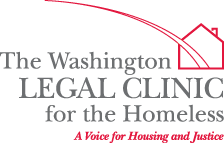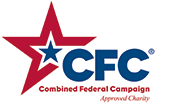On Tuesday, December 5, the DC Council passed the Homeless Services Reform Amendment Act of 2017, with a vote of 10-2. Only Councilmembers Trayon White and David Grosso voted no. (Brandon Todd was absent.) Because the bill is subject to appropriations and has to go through Congressional review, it probably won’t take effect until next fall. The Legal Clinic is among dozens of organizations and community leaders that opposed this bill because it erodes the safety net for people experiencing homelessness and does nothing to improve services or end homelessness. We view what happened last week as a net loss for District residents…those residents who may need to turn to the shelter system for assistance, and all of us who believe in a more just community. In addition to failing to advance the fight against homelessness, this bill is not cost saving – in fact the Office of the Chief Financial Officer of the District says it will cost DC taxpayers money to implement this legislation.
The bill that Mayor Bowser proposed in May 2017 would have resulted in a catastrophic deprivation of basic constitutional rights and access to lifesaving services. Thanks to a lot of hard work from some Council staff and members, the bill that was passed on December 5th is much improved from that version. However, it is not legislation that will improve the lives of those experiencing homelessness in the District. At the end of the day, the majority of DC Council chose to stand with the Mayor, and not people experiencing homelessness. In the midst of DC’s affordable housing crisis, the majority of the DC Council chose to limit access to emergency shelter. They bought into the Mayor’s harmful narrative perpetuating the myth that significant numbers of families fake homelessness and/or DC residency in order to get into DC General – the same facility the Mayor has been telling us for years is so decrepit and inhumane that it must be shut down. They claimed scarcity of resources required the hardening of their hearts toward displaced DC residents, while once again approving a $36 million gift of taxpayer money to an out-of-town developer – to build a parking lot.
The Final Vote: Details and Our Take
Last week we put out a list of ten fixes needed in the bill. Here’s how our top concerns were impacted by final amendments:
- End the Rapid Re-housing cliff. No arbitrary time limits.
Brianne Nadeau introduced an amendment stating that a client cannot be exited from the rapid re-housing program for a time limit unless “the client was assigned to the provider for substantially all of the client’s time in the housing program.” This is fine—clients should not be terminated when they haven’t even been assigned to a service provider. But getting assigned to a service provider doesn’t mean that participants are getting the services they’ve been promised. If clients have been “assigned” to a provider but perhaps not an actual case manager, or have had poor or inadequate services from that provider, they can still be terminated from rapid re-housing based on a time limit. Advocates from multiple organizations reached out to Nadeau prior to the vote to suggest some language tweaks to make this a meaningful reform, but she rejected any changes. The amendment passed unanimously.
Trayon White introduced an amendment to allow a six month extension of rapid re-housing assistance for families who have not received quality services, have not been referred to other appropriate housing programs, or are likely to become homeless upon exit from the program. If you remember, this amendment almost passed at first vote, only failing when Anita Bonds changed her vote at the last minute. Then she issued a statement asserting that she had voted no just to give Councilmember Nadeau time to work on the fiscal impact, and that she looked forward to working with Trayon White on the amendment. By the second vote on Tuesday, the cost had been calculated, and it was a little over $2 million per year to extend families in those circumstances. Nevertheless, Anita Bonds, and five of her colleagues, including Brianne Nadeau, voted no and the amendment failed.
Where do we go from here on rapid re-housing? First, Brianne Nadeau and the Committee on Human Services will hold a public roundtable on Thursday, December 14, at 11AM in Room 500 of the Wilson building (1350 Pennsylvania Ave NW). You can sign up to testify by the end of next Tuesday by emailing humanservices@dccouncil.us or calling (202) 724-8170. Second, contact your Councilmembers. Tell them what you think of their votes. Tell them that they need to make this roundtable more than an empty political exercise: they need to do real oversight of the program and craft legislative fixes to protect families from being harmed by arbitrary time limits. If they don’t, then they must transition funding away from rapid re-housing and into more permanent solutions that are proven to be more effective and humane.
- Allow DC residents to provide evidence of DC residency that isn’t on an exclusive list.
In response to community concerns that the “catch-all” for documentation of residency was too restrictive and would exclude many actual DC residents, Brianne Nadeau introduced an amendment that removed the requirement that each acceptable document be in regulations. That solved one problem, but potentially creates several more. The language of her proposed catch-all reads: “Any other document the Department identifies as acceptable proof of residency.” We asked her to modify her amendment to “Any other document the Department identifies as acceptable proof of residency or that is determined to be credible evidence of residency.” This would create a neutral, administrable standard that should allow people who are legitimately DC residents to prove that they are, but would not allow in non-DC residents. She rejected this suggestion. Her amendment passed unanimously.
- Don’t leave families out in the cold because they can’t prove returning to housing is “impossible.”
Robert White introduced an amendment to change this language to “the individual or family cannot safely inhabit the housing associated with the lease or occupancy agreement.” The amendment passed unanimously. This was an important change. We had also recommended clarifying that credible evidence includes a credible oral statement, to be consistent with the federal HEARTH Act. That recommendation did not go through.
- Don’t give the Mayor power to “re-determine eligibility” without adequate protections.
In response to community concerns that clients can be terminated from shelter or housing for an absence of more than 4 days, no matter the reason, Robert White introduced an amendment that limited such terminations to “an absence of more than 4 consecutive days without good cause, according to a standard established by the Mayor.” This amendment passed unanimously. No other changes were made to the “re-determining eligibility” sections.
- Don’t allow the Mayor to emergency transfer people unless it is clear what the violation is so the client can prevent the violation from happening.
No changes.
- Ensure that families with kids with disabilities can qualify for permanent supportive housing if they need intensive case management services to stay in housing.
No changes. These families will be ineligible for permanent supportive housing.
- Ensure that people exiting hospitals, jails, or other institutions after more than 180 days are still eligible for shelter or permanent supportive housing if they’re homeless.
Mary Cheh and Charles Allen introduced an amendment to strike the “180 days” restriction in the chronically homeless definition. It passed unanimously. They did not remove the 180 day restriction in the definition of homelessness, which creates a strange inconsistency in the bill, but perhaps that can be fixed in a technical amendment.
- Ensure that people getting in-patient treatment or going to jail retain their right to return to permanent supportive housing.
No changes.
- Don’t expand the power to do emergency terminations when there is no immediate threat.
No changes.
- Add real solutions to homelessness.
No changes.
In addition to our top priorities, there were two other amendments that fixed problems with the bill that we had identified. First, Brianne Nadeau introduced an amendment to clarify that, in medical respite beds, medical decisions are exempt from due process protections in the HSRA but non-medical adverse actions are not, and must be done in consultation with the medical provider. That amendment passed unanimously. Second, Mary Cheh and Charles Allen introduced an amendment to clarify that the time to appeal is not tolled until someone who is hospitalized gets actual notice of the adverse action. It also passed unanimously.
What Happens Next?
First, we thank Trayon White and David Grosso and their staff for working hard to fix the bill and for voting no when they couldn’t get it all the way there. We thank Robert White and his staff for working hard to improve this bill right up until the end and supporting the rapid re-housing amendment. We thank Kenyan McDuffie, Elissa Silverman, and Vince Gray for supporting Trayon White’s rapid re-housing amendment. We thank Mary Cheh and Charles Allen for moving two good amendments. Finally, we thank Brianne Nadeau for the improvements that she made in the bill. While we’re disappointed that she remained standing with the Bowser administration on some key issues and disagree with her conclusion that this bill “will ultimately protect the District’s right to shelter,” we are hopeful that Councilmember Nadeau will follow through on her acknowledgement that the Council’s work is not yet done…that further reform of DC’s homeless services is needed, even if not through the HSRA. Even more importantly, we hope that she will be a strong ally during budget season as we advocate for more funding for truly affordable housing, which is the only real solution to the crisis of homelessness here in the nation’s capital.
We tell all of the Council, other than Trayon White and David Grosso, that we expect more from them, that we need them to go beyond rhetoric and stand alongside people who are homeless—and that we’re paying close attention to their votes and their actions.
After processing and holding our elected officials accountable, we turn to the rapid re-housing roundtable and to advocating for the affordable housing that we all agree is necessary to end homelessness and to limit the impact of arbitrary time limits in rapid re-housing. We at the Legal Clinic, along with many of our partners, will also be advocating for regulations and policies that clarify some vague or concerning aspects of the new law as well as exploring litigation strategies to protect our clients’ rights.
Thank you to the hundreds who called, emailed, and visited your elected leaders. Thank you to all 46 organizations and community leaders who signed the letter asking the Council to vote no. Thank you to our closest partners and co-strategists for all of your time and energy and work over the last year and a half, in particular: ACLU of DC, Bread for the City, Children’s Law Center, DC Coalition Against Domestic Violence, Fair Budget Coalition, Good Faith Communities, Legal Aid Society, and Neighborhood Legal Services Program. Without all of you we would be preparing for a much more catastrophic erosion of the rights and safety of people experiencing homelessness.





